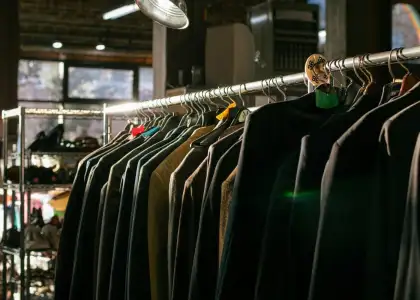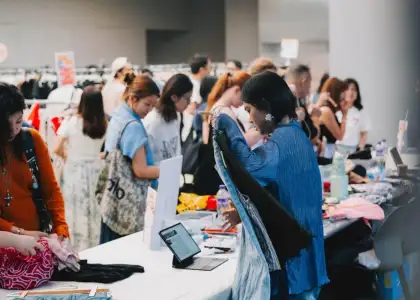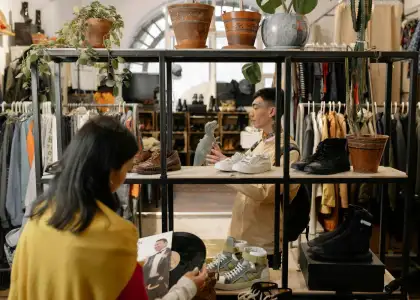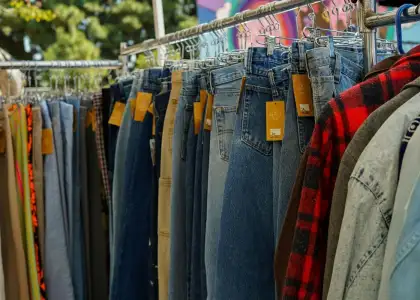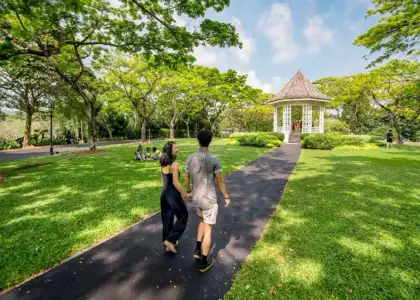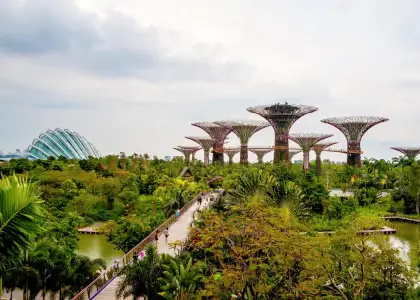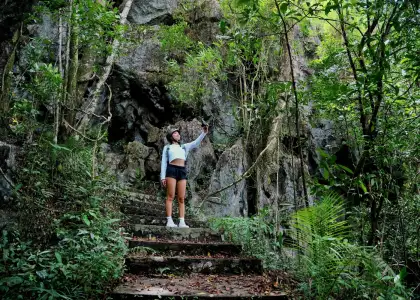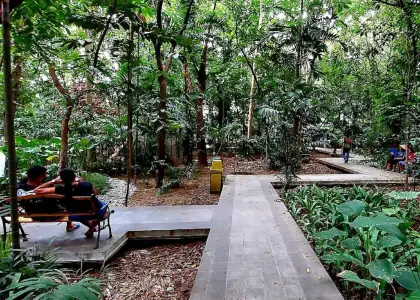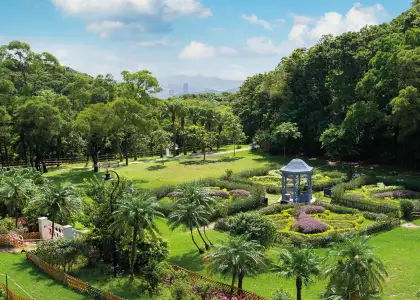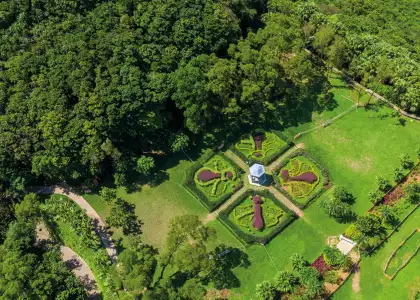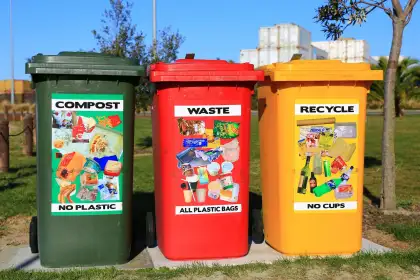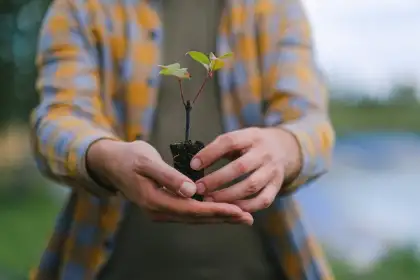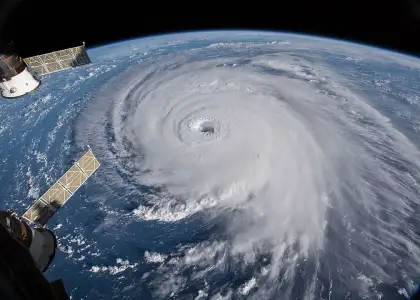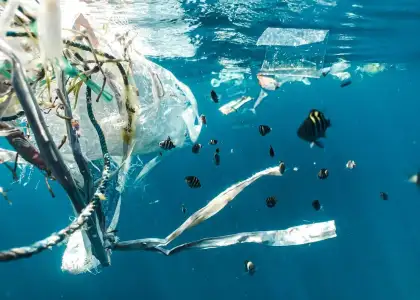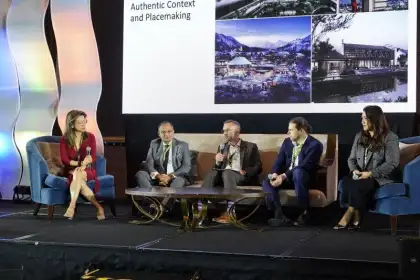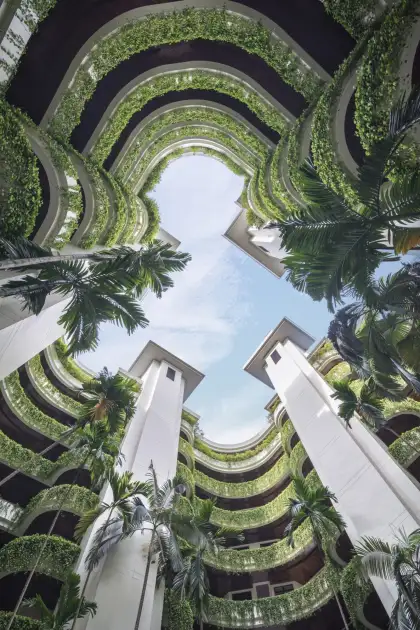GGC's Christina Lee Wants Boardrooms to Take Sustainability Seriously

When Christina Lee began her career in ESG, sustainability was no bigger than a footnote in the boardroom. Often treated as an afterthought in the wider clout of corporate social responsibility, sustainability barely made it to company agendas, either due to a lack of mandate or a gap in skills and knowledge.
Carrying an extensive background in the media industry, Christina said her first serious foray into the world of sustainability began about 14 years ago when she helped mount a green business summit in China, rallying C-level business leaders to talk about the impact of green economics of their industries. Leveraging her first-mover advantage, Christina banked on her newfound connections to formally help businesses find a space for climate change integration in their game plan.
She is now at the helm of Global Green Connect, a company that helps organisations embed sustainability into their systems to create “purposeful growth.” Their approach to integrating sustainability into a business’ strategy is two pronged—a consultancy service that develops roadmap and action plans to match a company’s ESG targets; and an academy that provides certifications to executives to meet market demands while ensuring long-term profitability through partnership with universities.

While sustainability has evolved from a mere talking point to an actual target in select industries, work is far from done. Studies show that a gap in expert-level knowledge and skills at the executive level remains one of the hurdles to converting intention to action. In a survey by Heidrick & Struggles, INSEAD, and BCG published last July, only 29% of surveyed board members said they had enough knowledge to “effectively challenge management on sustainability plans and ambitions and exercise oversight on their execution.” In another study published by Ernst and Young in February, nine in 10 CEOs in Asia-Pacific said their companies’ sustainability transition strategy faced resistance from investors and shareholders.
This, despite the potential economic opportunities presented by a sustainability-focused transition.
In the same study, E&Y projected that the value of business opportunities related to clean energy transition in the ASEAN region amounted to US$1 trillion. Climate investment also appeared to have a tangible impact on the balance sheet as nearly seven in 10 companies saw “somewhat or significantly higher-than-expected financial value from their climate initiatives.”
Positioning Global Green Connect as an impact business that helps address the knowledge gap, Christina believes that sustainability is a must in every company, regardless of their industry. In an interview with The Beat Asia, the female founder shared what it’s like to talk about sustainability back in the day when no one was doing it—and now that everybody is all over it.
How did you begin your work in sustainability?
I used to work for Business Week. In 2009, I helped them launch the first Green Business Conference in Tianjin, China. Subsequently, we ran the second conference in Shanghai in 2010. This project opened my eyes. When I got 600 business leaders, policymakers, and academics in Tianjin to talk about ecological development, it inspired me. Back then, nobody talked about it, and nobody really thought that was an issue.
After the conference, I got in touch with the speakers and this connection deepened my knowledge of climate change and its correlation to businesses. That’s the beauty of coming from a media background, you get the opportunity to touch on different industries.

How did you transition from working in the media to saving the planet?
I used to help people build brands and sell more products. And then I had an “aha” moment. I realized everything I did was the opposite of promoting sustainability. But I knew that I could not do everything on my own without a global partnership.
So, I thought, how can I use my skillset or repurpose what I know and apply that to sustainability practices? Of course, coming out from the media, the first thing I thought was to continue with the conferences. But running a conference without a big brand is not easy and being an entrepreneur requires a different game plan.
I would say I started a little bit too early. And when I look back, I'm glad that I did because we have accumulated the network, experience, and credentials, as well as created this impact. We have the first-move advantage when building other verticals to close the gaps. I think because of the good work that we have done in the past, it also helped us to attract and retain talents to grow the business with us.
As somebody who started early, what do you think are the common pain points companies face when trying to integrate sustainability into their business or systems?
It depends on the size of the company. For a multinational company, the pain point is change. Integrating sustainability into your business involves external factors such as compliance, customers, investors, and carbon tax in some countries, or the regulation in Europe, for example. There's a force from outside that’s pushing them that you need to make changes.
But I think internally, to get the system to change, the mindset also needs to change which is often complex, takes time, and becomes a pain point.
When it comes to small- and medium-sized enterprises, I think the pain point is finding resources, which include time, manpower, and capital.
How do you ensure that integrating ESG is a win-win for both the society and company stakeholders? Are there any pushbacks or reservations?
I will unpack this question in two folds. There are companies that have their own set of ratings for ESG. This is not financial data. And I feel that a lot of finance companies are still struggling to translate those non-financial data into financial terms. So, that's number one. Number two, I won’t say ESG is the total solution. That's why you have a lot of pushbacks from different people. It’s a good baseline framework, but it doesn't cover all.
Sustainability is a broad topic. Ten years ago, if I walked into a boardroom and talked about sustainability, the CEO would probably look at me and say, “Christina, so you are in CSR?” In the good old days, corporate social responsibility is synonymous to what they understand as sustainability.
But the reality is sustainability covers more than just CSR and ESG. I think, when you look at sustainability, it's a much broader term. It also means having a good social impact.
We consider Global Green Connect as an impact business because we do training to close the knowledge gap. While not everyone may need to go to the sustainability department, we teach them how they can integrate sustainability into their work so that their business can be transformed.
Please tell us more about your certification programmes.
We have a lot of programmes covering professional training and certification. We have programmes on ESG data management and reporting for SMEs, sustainable finance, carbon management, real estate, etc.
We also run preparation courses to help candidates pass CESGA (Certified ESG Analyst) exam, which is an international accreditation at a diploma level. You can take the CESGA exam regardless of your industry, but you would find it less challenging if you have some basic financial knowledge. In Hong Kong, for example, there are chief sustainability officers, accountants, CFOs, and CEOs who have obtained this accreditation.

Singapore has been touted as a green city. As a company headquartered in Singapore, how do you think companies like yours are helping with the government's climate target?
We are trying to help companies reduce carbon emissions and make their businesses sustainable. We also work with universities, such as the NTU and SMU. So, when candidates sign up for our program, they get subsidies from the SkillsFuture in Singapore.
Do you believe that sustainability should be a priority in every company?
Yes. If we continue to consume and produce as we do now, I think we will have a lot more challenges ahead when it comes to climate change. Food security is a big challenge, and we experienced supply chain disruptions during COVID-19, right? I believe sustainability is universal—from the government, investors, and financiers to companies and consumers. We need to make a change, but an organisation or government can’t make the difference alone. Climate impact is an irreversible trend, so we need to act now.
Lastly, where do you see Global Green Connect in the next few years? What's your vision?
We envision Global Green Connect becoming a global company. We opened our office in Malaysia last October, and we also intend to expand further to the other part of Southeast Asia and Australia. We are growing our team not only for the sake of growing our business, but also deepening our impact.
We also have a lot of global partners. If you meet our team, you'll see that they don't really see it as just a job. We are on a mission and we take sustainability at heart. The income will come, but our goal is not just to chase the dollars. Our goal is to create a purposeful impact through our services.
Learn more about Global Green Connect by checking out their website.
Get the latest curated content with The Beat Asia's newsletters. Sign up now for a weekly dose of the best stories, events, and deals delivered straight to your inbox. Don't miss out! Click here to subscribe.









